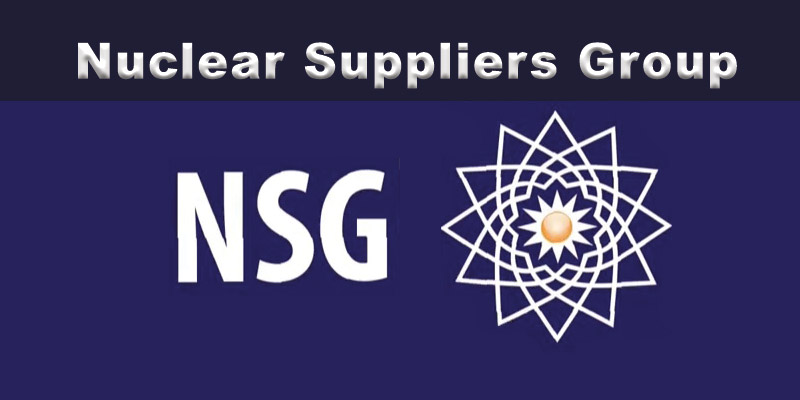- India
- Jun 09
Explainer / Nuclear Suppliers Group (NSG)
• India is looking forward to joining the Nuclear Suppliers Group (NSG), overcoming the political impediments that are against global interest, Minister of External Affairs Minister S. Jaishankar said.
• Jaishankar said India’s membership of the MTCR (Missile Technology Control Regime), Australia Group and the Wassenaar Arrangement are significant. All these groupings are multilateral export control regimes.
• China has been stridently opposing India’s NSG bid primarily on the grounds that New Delhi is not a signatory to the Nuclear Non-Proliferation Treaty (NPT). Its opposition has made India’s entry into the group difficult as the NSG works on the principle of consensus.
• Ever since India applied for the membership of the NSG in May 2016, China has been insisting that only those countries which have signed the NPT should be allowed to enter the organisation.
Nuclear Suppliers Group (NSG)
• The Nuclear Suppliers Group (NSG) is a group of nuclear supplier countries that seeks to contribute to the non-proliferation of nuclear weapons through the implementation of two sets of guidelines for their nuclear exports and nuclear-related exports.
• The NSG consists of 48 member states.
• Shortly after entry into force of the Treaty on the Non-Proliferation of Nuclear Weapons (NPT) in 1970, multilateral consultations on nuclear export controls to reach common understandings led to the establishment of a mechanism for dealing with nuclear exports — the Zangger Committee in 1971.
• In 1974 the Zangger Committee published a “Trigger List”, that is, items which would trigger a requirement for Safeguards and guidelines (“common understandings”) governing the export, direct or indirect, of those items to non-nuclear-weapon States (NNWS) that are not party to the NPT.
• The Nuclear Suppliers Group (NSG) was created following the explosion in 1974 of a nuclear device. It was felt that conditions of nuclear supply might need to be adapted so as to better ensure that nuclear cooperation could be pursued without contributing to the risk of nuclear proliferation. This event brought together the major suppliers of nuclear material, non-nuclear material for reactors, equipment and technology who were members of the Zangger Committee, as well as States who were not parties to the NPT.
• The NSG, known originally as the “London Club”, convened a series of meetings to facilitate a consistent interpretation of the obligations among major suppliers in and outside of the NPT.
• The NSG, taking into account the work already done by the Zangger Committee, agreed on a set of Guidelines incorporating a Trigger List.
• The NSG Guidelines are consistent with, and complement, the various international, legally binding instruments in the field of nuclear non-proliferation.
• These include the Treaty on the Non-Proliferation of Nuclear Weapons (NPT), the Treaty for the Prohibition of Nuclear Weapons in Latin America (Treaty of Tlatelolco), the South Pacific Nuclear Free Zone Treaty (Treaty of Rarotonga), the African Nuclear Weapon Free Zone Treaty (Treaty of Pelindaba), the Treaty on the Southeast Asia Nuclear Weapon Free Zone (Treaty of Bangkok), and the Central Asian Nuclear Weapon Free Zone Treaty (Treaty of Semipalatinsk).
• The NSG Guidelines are implemented by each Participating Government (PG) in accordance with its national laws and practices.
• Overall responsibility for activities lies within NSG Plenary meetings that are held once a year.
• A rotating Chair has the overall responsibility for coordination of work and outreach activities.
Manorama Yearbook app is now available on Google Play Store and iOS App Store

